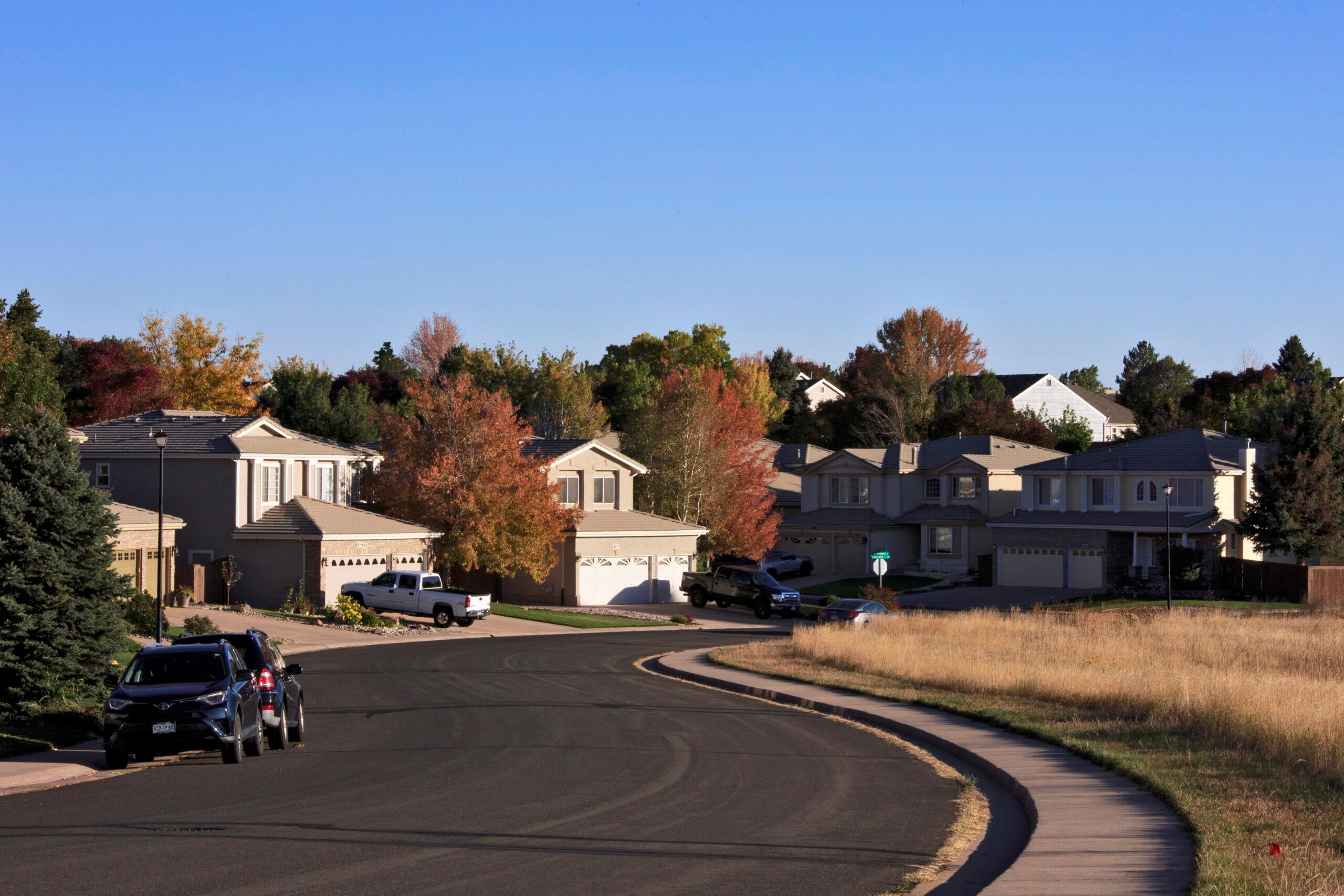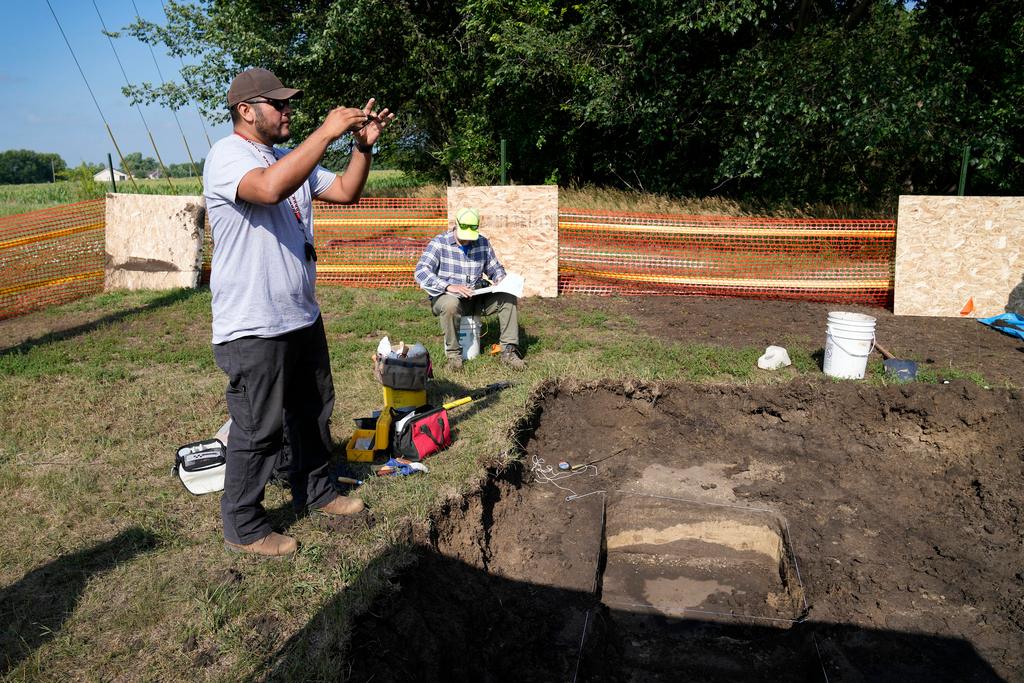
How many different plans are floating around Colorado to deal with property taxes? Let’s count them.
Last week, voters rejected Proposition HH, a ballot initiative with long-term property tax cuts. Starting Friday, Democrats will consider another tax package, this one a short-term fix, in a special legislative session. In 2024, voters will likely weigh in on a conservative group’s plan to slow the rise of property tax bills.
And, now, you can add a fourth item to the property tax agenda. The influential business group Colorado Concern announced on Thursday that it will push its own broad-ranging plan to reform the state’s property tax system.
The group is introducing a ballot measure that it plans to put on next November’s ballot. It’s a constitutional amendment that would slash property tax bills — resetting property values back to 2020 levels and strictly limiting their increase in the future.
“This brings everybody into the same boat, treats them all fairly, brings taxes way down, and allows them to grow at a very modest rate that is adequate to meet the needs of counties, and local governments, but also protects taxpayers. So this is a big game changer and we hope we can succeed,” said Mike Kopp, president of Colorado Concern.
The group has drafted initial ballot language for the measure, which is currently known as Initiative #97, and submitted it to the state. But it still must undergo review and, eventually, the group would have to collect more than 100,000 voters’ signatures to place it on the ballot for November 2024.
Because the measure would change the state constitution, backers will have to collect their signatures from all across Colorado, and it will need at least 55 percent support from voters to pass.
If it succeeds, the proposal would completely erase the upcoming spike in taxable property values, which is set to drive many tax bills higher by 30 percent or more next year. The Colorado Concern plan would ensure that a property owner’s tax bills can only grow by 2.5 percent per year in the future.
A property would only see its tax bill grow faster than that if it’s sold to a new owner; if the owner builds significant new square footage; or if voters agree to raise local tax rates.
When a property was sold, its taxable value would often rise. The new owner would then pay taxes based on the price they paid for the property. But the taxable value would, again, only rise by 2.5 percent annually for them from that point onward.
This would mark a significant change in how Colorado taxes property. Currently, county assessors are charged with determining each property’s value, every two years, based on market trends and comparable nearby sales. That means a home in a hot real estate market can see its taxes grow significantly with a reassessment, even if little about the home itself has changed.
Under the Colorado Concern plan, property owners would be insulated from changes in the real estate market as long as they hold onto their property. It resembles a well-known California law, Prop. 13, which similarly reduced taxable values, limited the growth of tax bills, and changed the assessment model.
Progressives in Colorado criticized that approach when Colorado Concern proposed a similar measure earlier, and they were already gearing up against it this week.
“Addressing cost of living issues requires balancing the household budget concerns of people in our state, the needs for local governments to provide services people want and need, like fire and emergency response, and state obligations like adequately funded schools,” wrote state Rep. Mike Weissman, a Democrat. “Initiative 97 badly fails to strike that balance.”
Limiting the growth of property tax bills would affect the budgets of schools and local governments. They would see smaller gains in property tax revenue during hot economic cycles. But, unlike proposals from statehouse Democrats, the Colorado Concern plan would not offer any “backfill” money to offset that slower growth.
Kopp said the proposal still lets local districts grow their revenue at a reasonable rate.
“Nobody objects to that, including us,” he said. “But what we don't want to have is just an environment where counties just sort of reap these big windfalls because the law is set up so that that's just the way that it is.”
This year’s sprawling debate over Colorado property taxes has its roots in the 2020 election when Colorado voters repealed the Gallagher Amendment. The amendment had granted homeowners larger and larger discounts on their properties’ taxable value, ensuring that residential tax bills grew relatively slowly despite huge gains in the state’s real estate market. Colorado’s residential tax rates are among the very lowest in the country.
But the Gallagher amendment also had a negative effect on rural governments, resulting in shrinking budgets for some. Those unintended consequences eventually led a bipartisan coalition to campaign for its repeal. And with the amendment gone, there is relatively little to shield homeowners from spikes in taxable value today.
Kevin Bommer, executive director of the Colorado Municipal League, hadn’t yet reviewed the measure on Thursday. But he said the growing crush of ballot measures shows the state legislature needs to take long-lasting action on property taxes.
“I'm not surprised that there's a vacuum out there right now of ideas. So people are going to fill it and maybe with good ideas, maybe with some that aren't,” he said.
Meanwhile, even more groups are mulling their own property tax ideas for the 2024 ballot — including statehouse Democrats, who may try again with another ballot measure in the spring.









